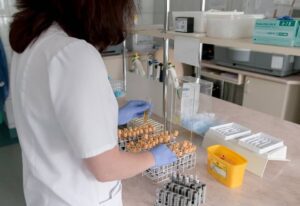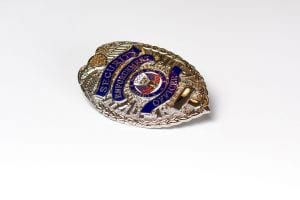Biliary Atresia
What is Biliary Atresia?
Biliary atresia is a condition occurring in infants in which the bile ducts both outside and inside the liver are scarred, blocked, or destroyed. The bile ducts are tubes that carry bile (fluid that aids in digestion) to the gallbladder. When the bile ducts are blocked, bile builds up in the liver and then damages it. This can lead to other health problems, including scarring, loss of liver tissue and function, and cirrhosis. Biliary atresia occurs in about 1 in 10,000 to 15,000 births in the U.S. and is slightly more likely to affect females than males. Babies with this condition may appear normal at birth, but the first symptoms often start to appear by the second or third week of life.What are the symptoms of biliary atresia?
- Yellow skin and whites of the eyes (jaundice) that appears within the first 2 to 6 weeks of life
- Pale yellow, white, or gray stool
- Dark urine
- Swollen stomach
- Abnormally enlarged liver
- By age 6 to 10 weeks: irritability, poor weight gain, increase in blood pressure
- Scarring of the liver
- Liver failure
- Less common symptoms: intense itching, heart malformations, kidney malformations, absence of the spleen, more than one spleen, and/or other anatomical abnormalities
What causes biliary atresia?
The exact cause of this condition is unknown. It is not inherited, but there are many potential contributing factors that are still being researched. Research suggests that the bile ducts are normal at first, but something causes them to be damaged in the womb or shortly after birth.How is biliary atresia diagnosed?
Biliary atresia is diagnosed using the following procedures:- Recording of medical and family history
- Physical exam
- Blood tests
- Ultrasound
- Hepatobiliary scan
- Liver biopsy
- Abdominal surgery to confirm diagnosis
What are the treatments for biliary atresia?
- Surgery called the Kasai procedure, which removes obstructions and allows bile to flow again
- Liver transplant
- Antibiotics to treat bile duct infections
- Special dieting plans and supplements
- Genetic counseling
Where can I find out more about biliary atresia?
Biliary Atresia Articles

Phase 2 EMBARK Study Results Available: LIVMARLI for Biliary Atresia
Jessica Lynn
January 16, 2024
Read More »

NDA for Potential Progressive Familial Intrahepatic Cholestasis Treatment Cleared by FDA
James Moore
January 27, 2021
Read More »


Experimental Treatment for Biliary Atresia Gets Orphan Drug Designation in the EU
James Moore
December 20, 2018
Read More »
14-Year-Old Aidan Needs a Liver Transplant to Treat Rare Biliary Atresia Condition
Patient Worthy Contributor
July 25, 2018
Read More »

Family Continues the Search for a Liver Donor for Their Baby
Meagan Fulps
January 1, 2018
Read More »

Family Can Go Home For The Holidays as Infant With Biliary Atresia Survives
Meagan Fulps
December 25, 2017
Read More »

Police Officer Goes Beyond the Call of Duty for Baby with Rare Liver Disease
Jean Martell
December 14, 2017
Read More »



